A Western Australian banana co-operative has been able to reduce its waste to less than five percent of its production, with the introduction of value-added products.
The Sweeter Banana Co-operative is owned by over 20 grower members, which pack and market bananas on the members behalf. It was first formed as a marketing organisation in 1998 and then became a co-operative in 2002.
"Most of our business is in fresh bananas, sourced from our members, the value-add products came about as a way of getting a return on everything our members grow," Business Manager Doriana Mangili said. "Our efforts to package, market and reduce food waste have resulted in our waste declining from 60 per cent before we started packing and marketing 'lunchbox bananas' to less than 5 per cent now."
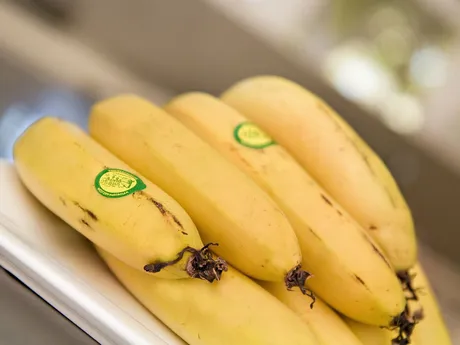
The bananas are available all year round with seasonal peaks, generally summer has greater supply than winter, but growers are working on new plantings all the time to achieve consistent supplies.
"We have a 'lunchbox banana' product which is our sub-tropical sweeter and creamier banana and Smoothies™ bananas that are our second-grade bananas, generally singles and sold in Coles Supermarkets," Ms Mangili said. "We also supply third grade bananas to food industry including artisan gelato makers, a banana bread sold both under our own Sweeter Banana brand for local sales and the baker’s own brand, farmers markets, restaurants and other food service."
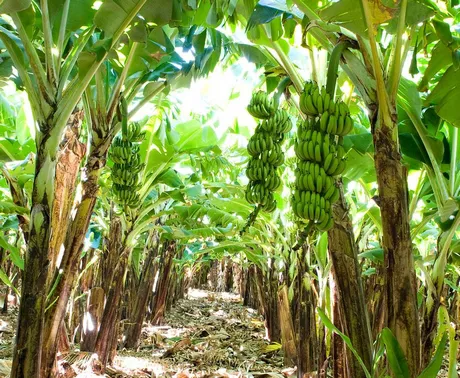
The bananas are also packaged in special bags to protect them from marking, which Ms Mangili says the members are currently looking at more sustainable ways to package our bananas using more environmentally sustainable solutions.
"Our bananas are harvested at a higher level of ripeness and our skins are thinner, therefore the bananas are more susceptible to marking during freight, handling and in retail environments due to consumers handling them," she said. "The bag protects the bananas from marking, packaging has resulted in our waste being reduced from 60 per cent to 4 per cent. It’s also important as part of our branding to assure customers they are purchasing genuine Carnarvon Bananas."
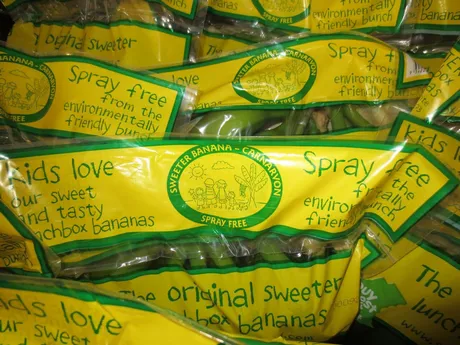
All of the bananas are grown in Carnarvon, 900 kilometres north of Perth, and are grown by members on family run farms. Most of the value adding is done in Perth, and that is also where the bananas are ripened.
"We have a truck that picks up and delivers trolleys for our growers to place harvested bunches," Ms Mangili said. "Full bunches are delivered to our central packing shed where we wash, grade and pack all the bananas for set markets. We have direct supply contracts and pack each consignment to order."
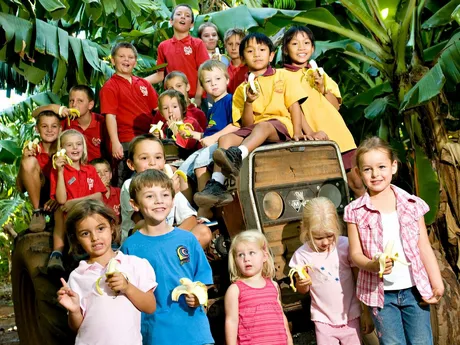
Ms Mangili adds that the sweetness in the banana comes down to climate and growing time; the cool nights in winter and the differential between night and day temperatures mean that the bananas put more sugar into the fruit and it is naturally sweeter and creamier.
"We also use minimal fertiliser which results in a more naturally grown banana," she said. "We had Curtin University do taste demonstrations on our product vs other Australian bananas and 9 out of 10 of those tested in a sensory testing trial preferred our bananas. They take 14-18 months to reach maturity from first planting, resulting in a sweeter, smaller and creamier banana."
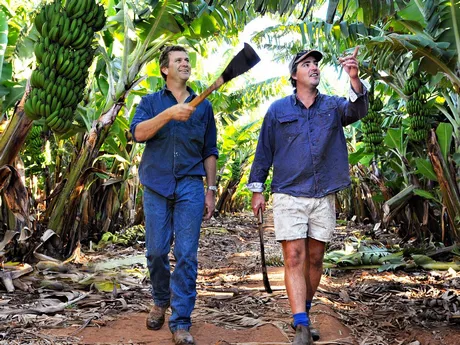
Currently the co-operative supplies just Western Australia, through all the major retailers and the independent sector, but Ms Mangili believes that there is opportunity for growth and export to niche markets who do not mind paying more for a sustainably grown and better tasting product.
"Our bananas are also spray free, we don’t aerial spray, we don’t use any pesticides, insecticides or fungicides on growing our bananas," she said. "We use integrated pest management, bugs for bugs, to manage any pest that we do have. Our climate is arid sub-tropical, we farm where the desert meets the sea. Our water comes from underground aquifers drawn from our usually dry river bed of the Gascoyne River, which is the longest river in Western Australia, it begins nearly 1000 kilometres away in the middle of the desert. The Gascoyne River flows every one to two years, and our carefully managed water supply is replenished to allow another couple of years of irrigation. We have expensive irrigation water, that is controlled and managed to ensure sustainable draw down with volume and salinity limits enforced."
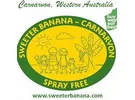 For more information
For more information
Doriana Mangili
Sweeter Banana Co-operative
Phone: +61 8 9941 9100
www.sweeterbanana.com
